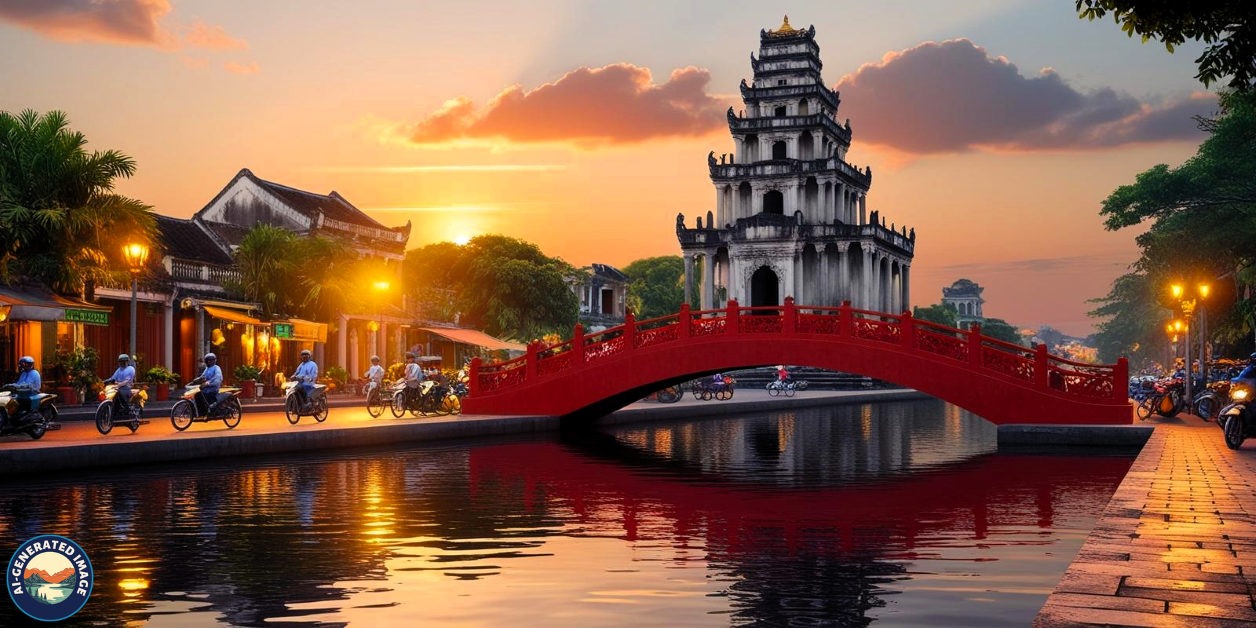Introduction
Hanoi, the lively capital of Vietnam, seamlessly blends history with modernity. With its colonial architecture, rich culture, and bustling streets, Hanoi offers travelers a unique experience. Let’s dive into what makes this city so mesmerizing!
A Glimpse into Hanoi’s Past
Early Origins and Historical Foundations
Hanoi’s origins trace back over a thousand years. Established as Vietnam’s capital in 1010 by Emperor Ly Thai To, it was originally called Thang Long, meaning “Rising Dragon.”
Colonial Rule and the Road to Independence
In the 19th century, Hanoi was under French colonial control, significantly influencing its architecture and culture. The city played a pivotal role in Vietnam’s journey to independence, ultimately becoming the nation’s capital after reunification in 1976.
Hanoi Today
Now a bustling metropolis, Hanoi retains its historic essence while embracing modernization. Its vibrant streets are lined with ancient temples, French-inspired buildings, and contemporary structures.
Top Attractions
Hoan Kiem Lake and Ngoc Son Temple
Located in central Hanoi, Hoan Kiem Lake provides a peaceful retreat from the city’s hustle. The striking red bridge leads to Ngoc Son Temple, a revered historic site dedicated to General Tran Hung Dao.
Hoan Kiem Lake
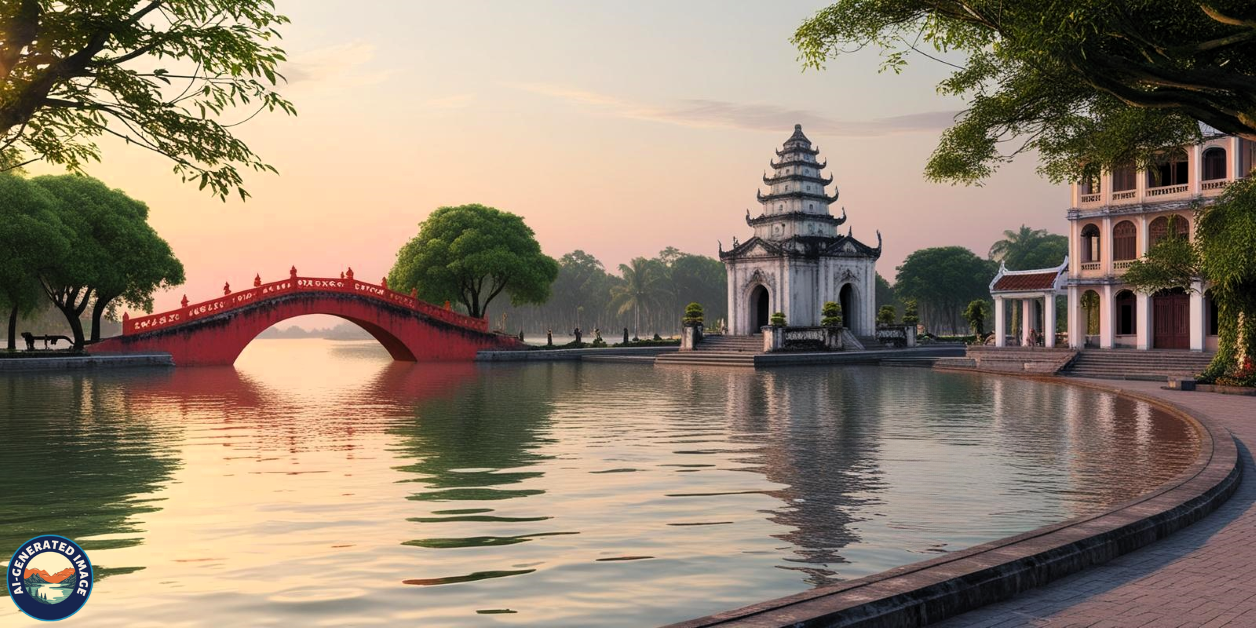
Ngoc Son Temple
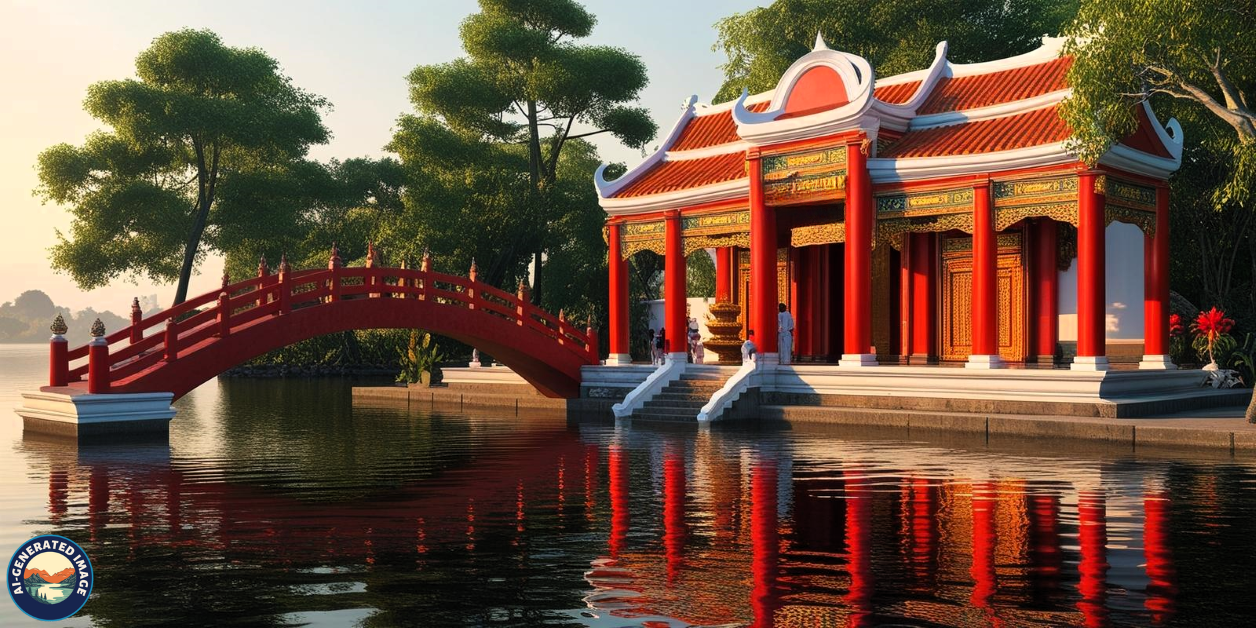
Exploring the Old Quarter
Hanoi’s Old Quarter is a labyrinth of narrow streets, each one specializing in specific trades. It’s the best place to experience local markets, sample street food, and embrace the city’s dynamic spirit.
Ho Chi Minh Mausoleum – Honoring a National Hero
This grand structure is the resting place of Ho Chi Minh, the leader who shaped modern Vietnam. A visit here is essential for understanding the country’s past.
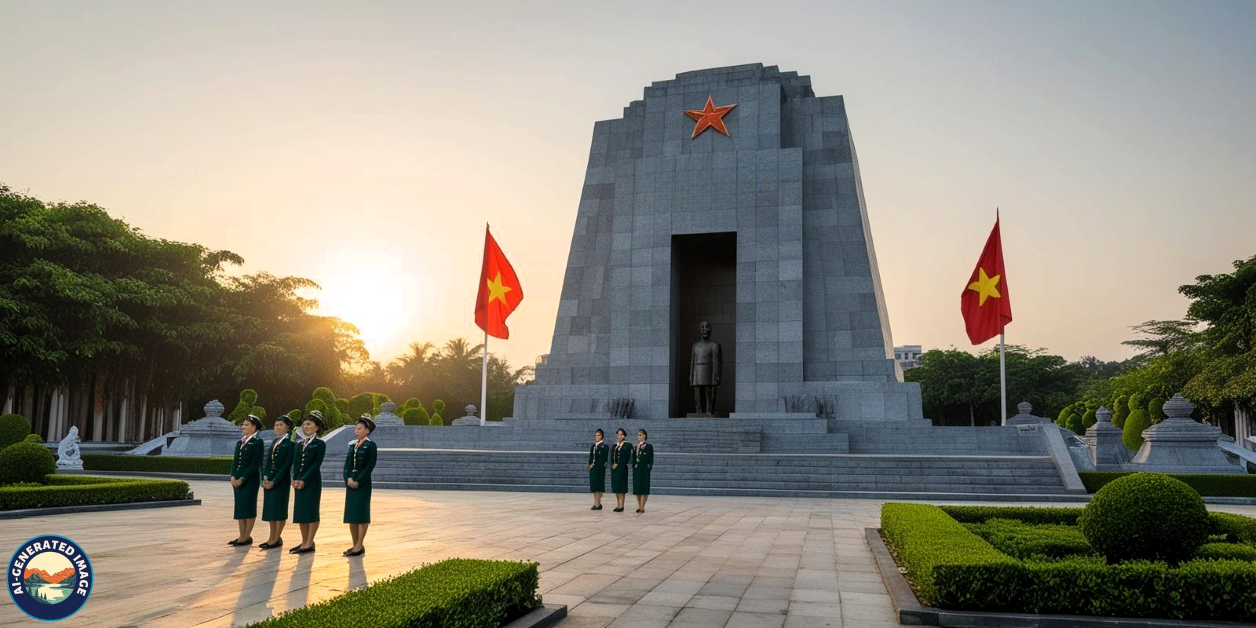
Temple of Literature – Vietnam’s First University
Built in 1070, this temple is dedicated to Confucius and was Vietnam’s first university. It remains an impressive example of traditional Vietnamese architecture.
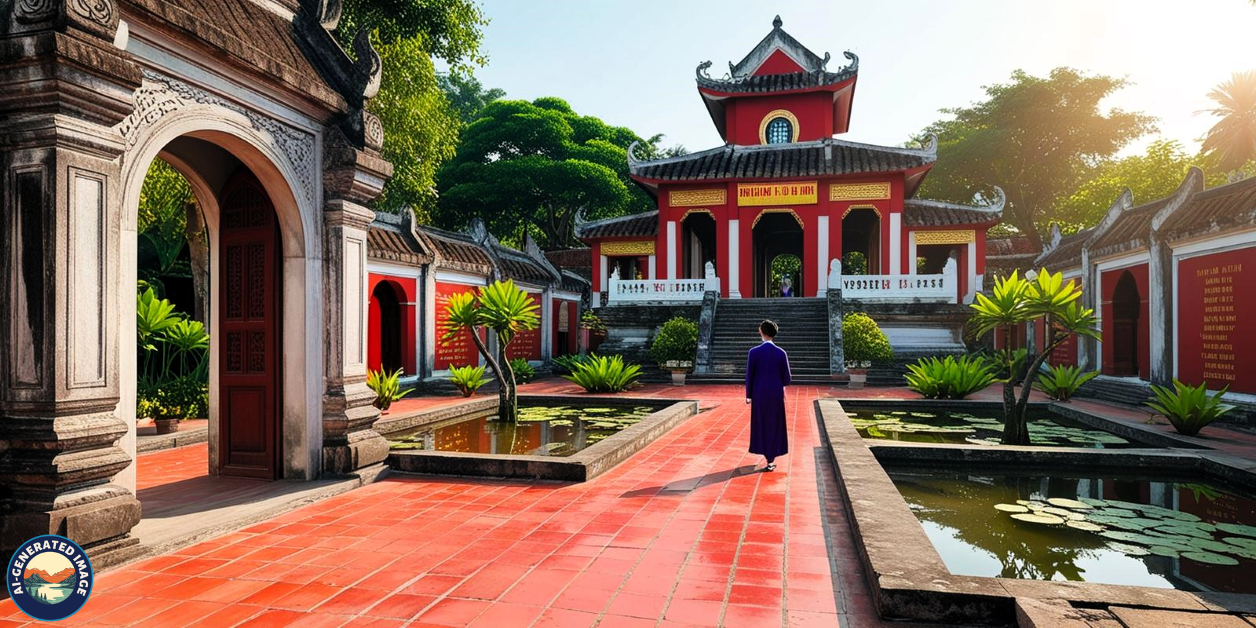
Tran Quoc Pagoda – Hanoi’s Oldest Buddhist Site
Situated on West Lake, this ancient pagoda dates back to the 6th century and is a significant spiritual landmark.
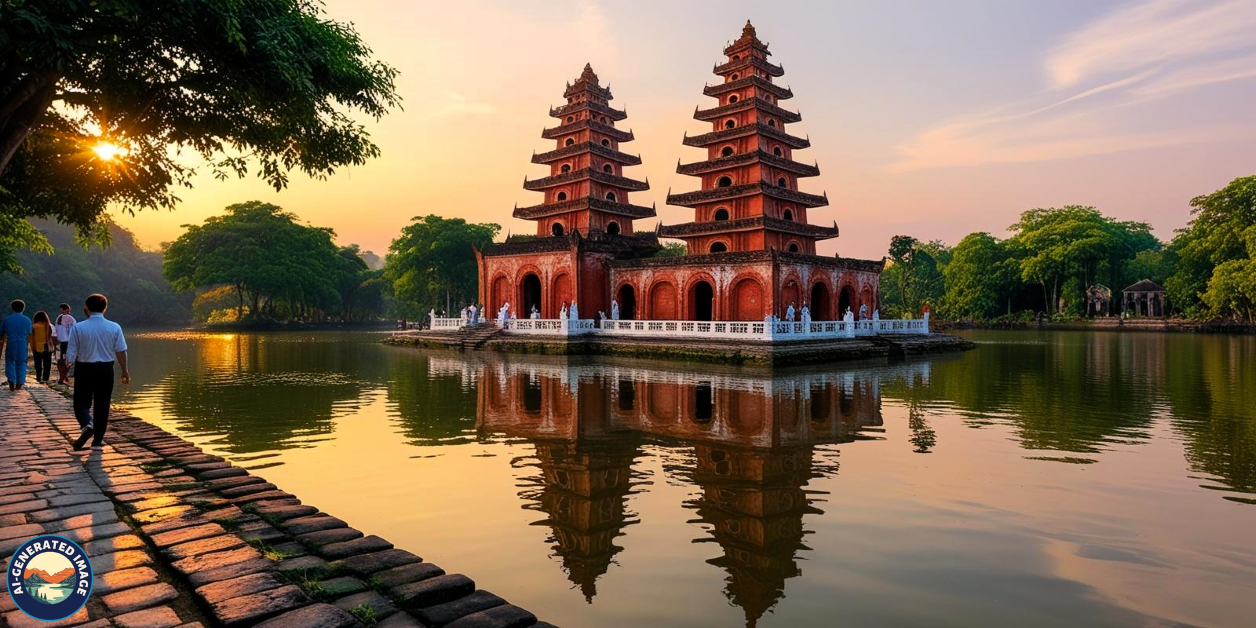
Thang Long Imperial Citadel – A UNESCO Heritage Site
A key political center for centuries, this site offers a glimpse into Vietnam’s royal past and rich history.
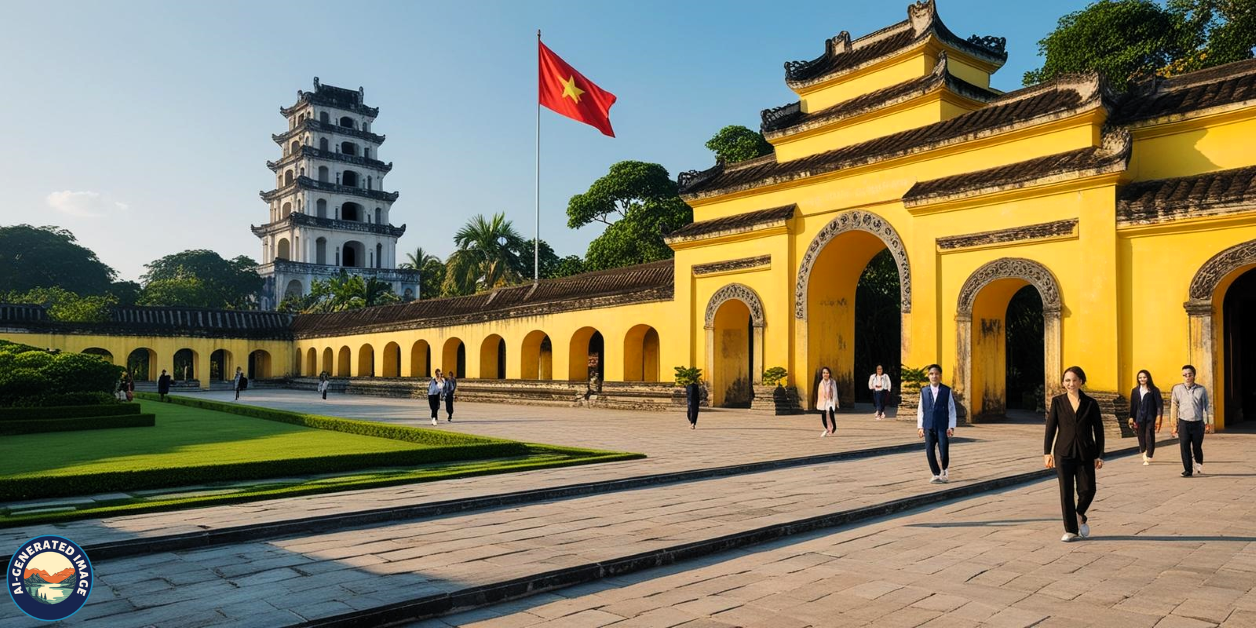
Unforgettable Experiences
Water Puppet Theater – A Cultural Delight
Originating in northern Vietnam, water puppet performances illustrate folklore, history, and rural life in a unique art form.
Hanoi’s Thriving Street Food Scene
From bustling markets to roadside vendors, Hanoi is a haven for food lovers. Exploring its street food culture is a must.
Train Street – A Must-See Attraction
One of Hanoi’s most extraordinary sights is Train Street, where trains pass through a narrow residential area just inches from homes and cafés.
Bia Hoi Corner – The World’s Most Affordable Beer
Bia Hoi, or fresh beer, is a local specialty. The best place to experience it is the lively Bia Hoi Corner in the Old Quarter.
Hanoi’s Culinary Delights – What to Eat
Pho – Vietnam’s Iconic Noodle Soup
A flavorful bowl of Pho is a must-try in Hanoi. It consists of aromatic broth, rice noodles, meat, and fresh herbs.
Bun Cha – Hanoi’s Signature Dish
This dish features grilled pork served with rice noodles and fresh greens, making it a beloved local favorite.
Egg Coffee – A Hanoi Specialty
Invented in Hanoi, egg coffee is a unique and creamy blend of whipped egg yolk, sugar, and strong Vietnamese coffee.
Best Day Trips from Hanoi
Ha Long Bay – A Breathtaking Wonder
A UNESCO World Heritage Site, Ha Long Bay is renowned for its emerald waters and dramatic limestone islands. A cruise here is highly recommended.
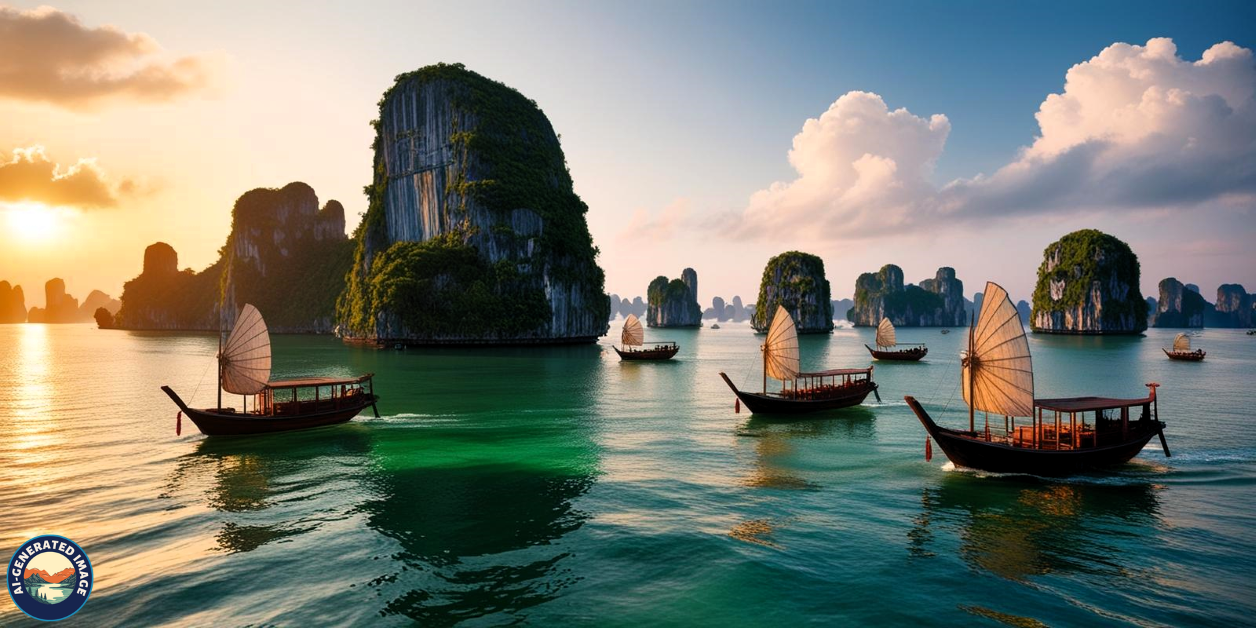
Ninh Binh – The “Ha Long Bay on Land”
Just a few hours from Hanoi, Ninh Binh offers mesmerizing landscapes, ancient temples, and peaceful boat rides through limestone karsts.
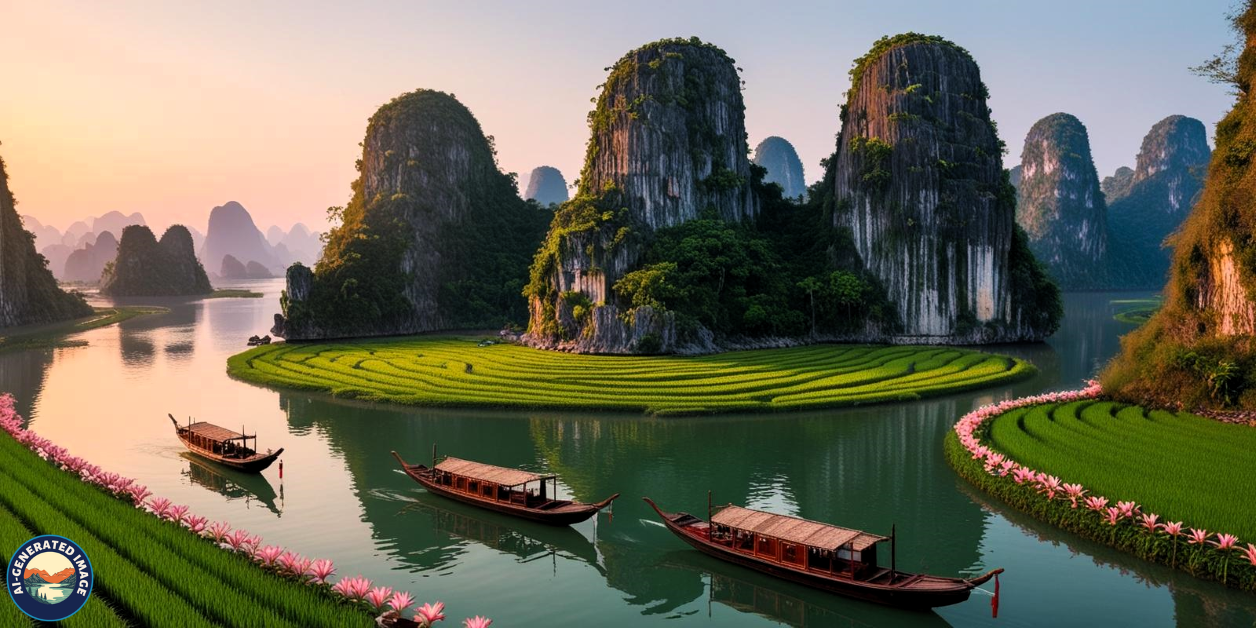
Perfume Pagoda – A Spiritual Getaway
Nestled in the mountains, the Perfume Pagoda is a series of Buddhist temples and caves offering a serene retreat from city life.
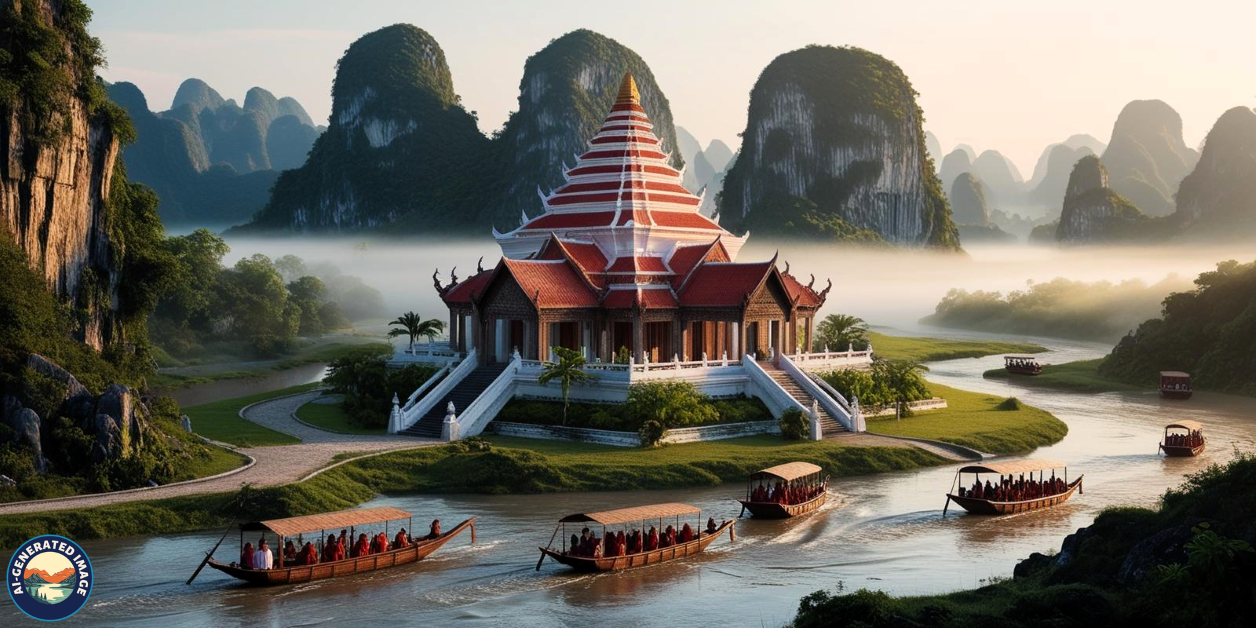
Where to Stay
Budget-Friendly Options
Affordable hostels and budget hotels in the Old Quarter provide comfortable accommodations for travelers.
Mid-Range Stays
Boutique hotels and well-rated mid-range accommodations offer excellent amenities at reasonable prices.
Luxury Hotels
For those seeking luxury, Hanoi features high-end hotels with world-class services and stunning views.
When to Visit
Hanoi experiences distinct seasons. The best times to visit are autumn (September to November) and spring (March to April) when the weather is pleasant and perfect for sightseeing.
Essential Travel Tips
-
Getting Around:
Use taxis, Grab, or rent a motorbike for convenience.
-
Safety and Etiquette:
Be mindful when crossing roads and respect local customs.
-
Useful Travel Tips:
Carry cash, learn basic Vietnamese phrases, and stay hydrated.
Conclusion
Hanoi is a city that enchants visitors with its rich history, dynamic culture, and mouthwatering cuisine. Whether wandering through the Old Quarter, savoring a bowl of Pho, or taking a scenic cruise in Ha Long Bay, Hanoi promises an unforgettable adventure. Are you ready to explore this incredible city?
FAQs
1. When is the best time to visit?
The best time is during autumn (September-November) and spring (March-April) when the weather is most favorable.
2. How many days are enough to explore Hanoi?
A 3-5 day trip allows ample time to visit key attractions and take a day trip to nearby destinations.
3. Is Hanoi a safe travel destination?
Yes, Hanoi is generally safe, but staying aware of your surroundings and keeping an eye on your belongings is advisable.
4. What should I pack for my Hanoi trip?
Comfortable clothing, sturdy walking shoes, a raincoat (if visiting in the rainy season), and sunscreen are recommended.
5. Do locals in Hanoi speak English?
English is commonly spoken in tourist areas, but learning a few basic Vietnamese phrases can be beneficial.

